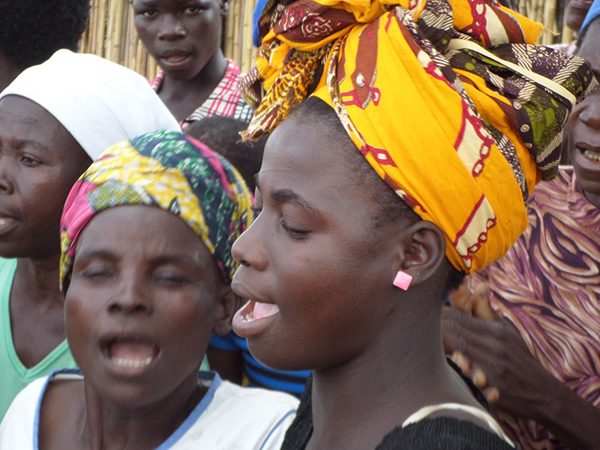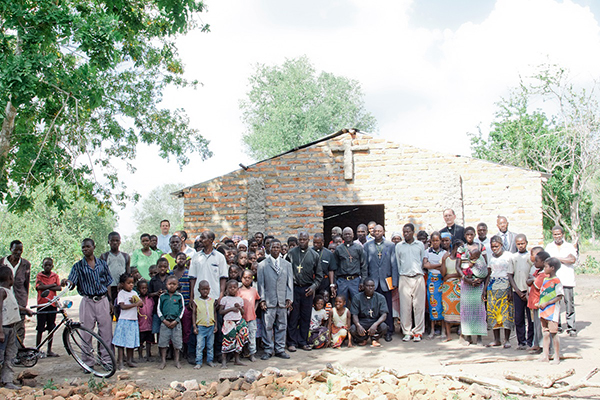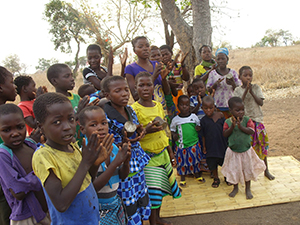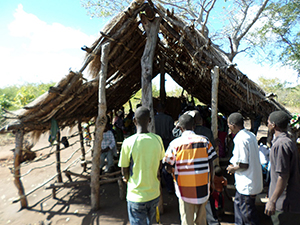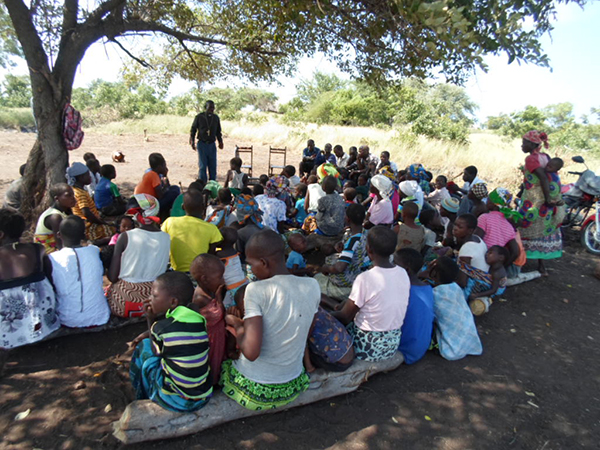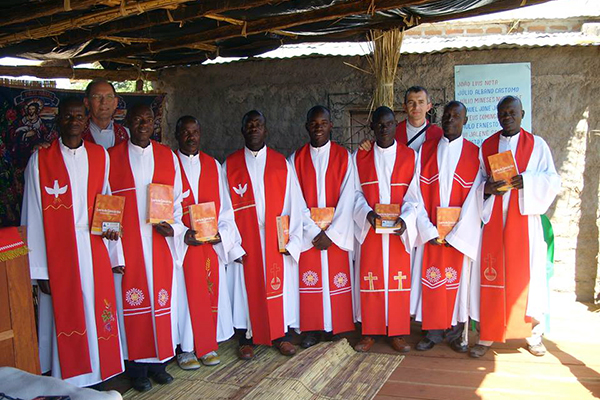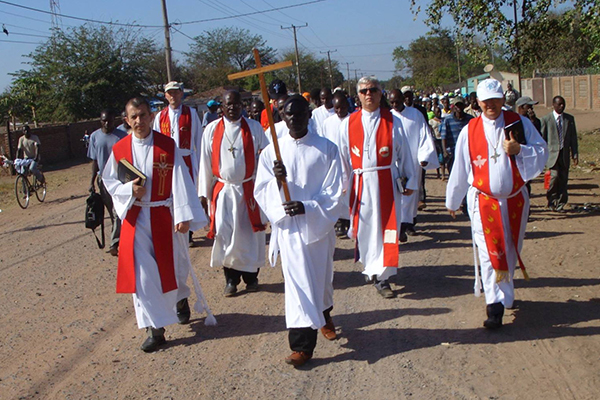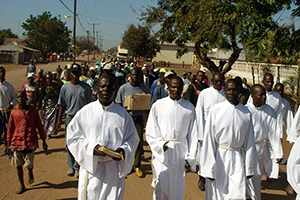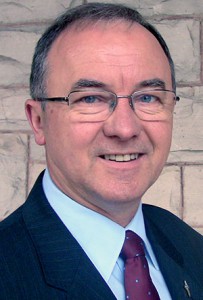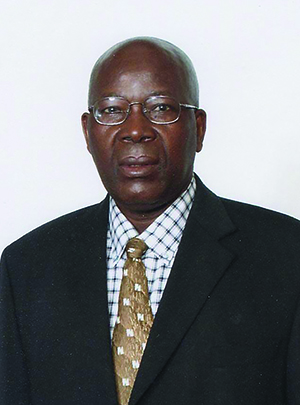
Rev. Joseph Alfazema
CANADA – Rev. Joseph Khembo Alfazema, the father of confessional Lutheran missions in Mozambique and a pastor of Lutheran Church–Canada (LCC), passed on to glory on May 11, 2019 in Edmonton, Alberta. A funeral service for Rev. Alfazema was held on Saturday, May 18, 2019 at Bethlehem Lutheran Church in Edmonton.
Rev. Alfazema was native to Mozambique, but fled to Canada with his wife Perpetua in the 1980s to escape civil war. After the war ended, the Alfazemas were asked to assist in the founding of a school, health centre, and clean water supply in their homeland. This led to the founding of the Kapesseni Project, which brought not only physical assistance to those struggling in the aftermath of the civil war but also spiritual care as well.
Rev. Alfazema pursued pastoral ministry through Concordia Lutheran Theological Seminary (St. Catharines, Ontario), and was called to serve Lutheran Church–Canada (LCC) as a missionary to Mozambique upon his graduation. While his wife Perpetua focused on social ministry needs through the Kuwangisana Project, Rev. Alfazema focused on Gospel proclamation and evangelization.
 Rev. Alfazema returned to Canada for health reasons following his retirement, but the work they began continued. In 2018, the church which grew out of his mission work was officially recognized by the Mozambican government as the Concordia Christian Church in Mozambique (Igreja Cristã da Concórdia em Moçambique – ICCM). While the church was officially registered by the government in 2018, it had previously operated unofficially for several years under the name Concordia Lutheran Church in Mozambique (Igreja Luterana da Concórdia em Moçambique —federal requirements in Mozambique prevented the young church from registering with the word “Lutheran” in its legal name).
Rev. Alfazema returned to Canada for health reasons following his retirement, but the work they began continued. In 2018, the church which grew out of his mission work was officially recognized by the Mozambican government as the Concordia Christian Church in Mozambique (Igreja Cristã da Concórdia em Moçambique – ICCM). While the church was officially registered by the government in 2018, it had previously operated unofficially for several years under the name Concordia Lutheran Church in Mozambique (Igreja Luterana da Concórdia em Moçambique —federal requirements in Mozambique prevented the young church from registering with the word “Lutheran” in its legal name).
The church grew out of Rev. Alfazema’s missions, and drew on the support of a number of international partners. Early on, Rev. Alfazema partnered with Rev. Dr. Carlos Walter Winterle to collaborate on mission work in the area. Dr. Winterle is president emeritus of the Evangelical Lutheran Church of Brazil (IELB) and was at the time serving with the Free Evangelical Lutheran Synod in South Africa (FELSISA). Together, LCC, the IELB, FELSISA, and The Lutheran Church—Missouri Synod, along with support from the Independent Evangelical Lutheran Church in Germany’s (SELK) Bleckmar Mission project, coordinated mission outreach and theological training in the country, especially through the formation of a Theological Education by Extension Program organized by the IELB.
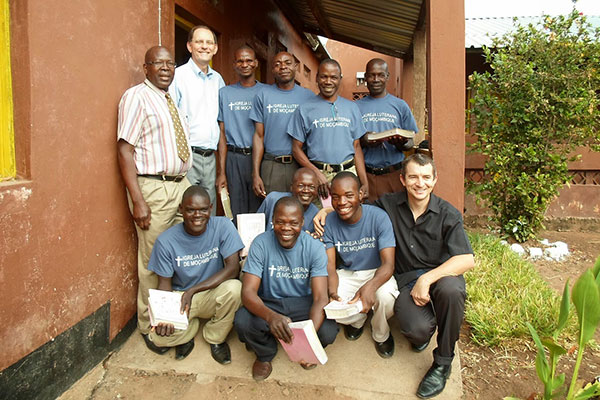
Rev. Joseph Alfazema (far left) poses with the first class of students Mozambique’s TEE program, along with TEE instructors Rev. Carlos Winterle (back-row, second-from-left) and Rev. André Plamer (front row, far right).
In August 2015, the Mozambican church celebrated the ordination of its first graduating class of pastors from the TEE. At the time, the church had ten congregations. By June of the next year, they had 31 congregations. Today, the ICCM has 80 congregations and a current class of thirty students training for the pastoral ministry.
The ICCM’s parent churches and supporters—LCC, the IELB, FELSISA, the LCMS, and SELK—are all member churches of the International Lutheran Council.
The family of Rev. Aflazema has invited those wishing to honour his legacy to contribute to the building of new classrooms for an elementary school in Mozambique.
———————

